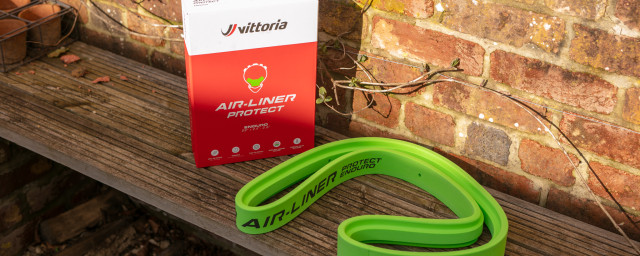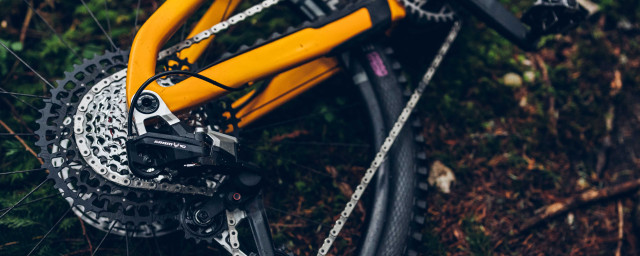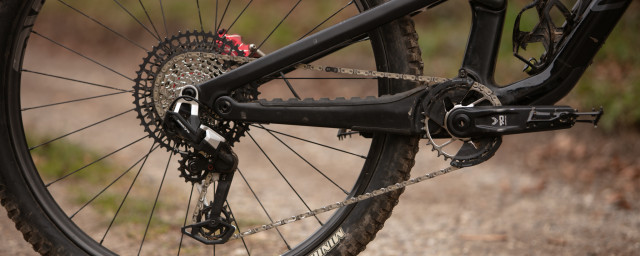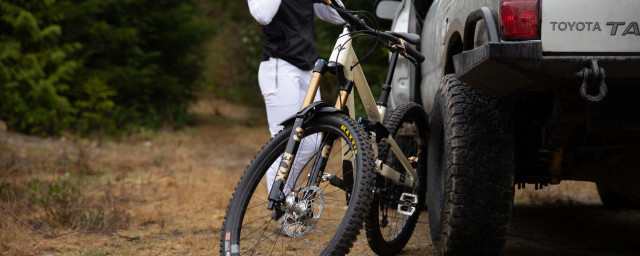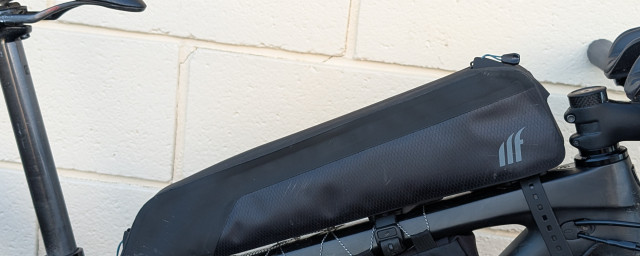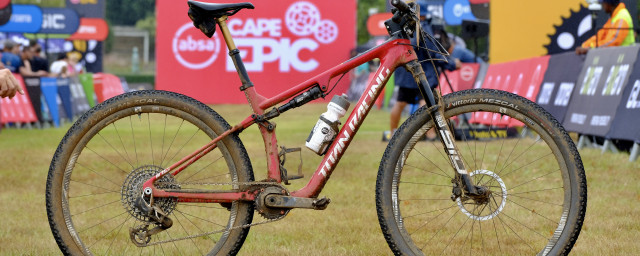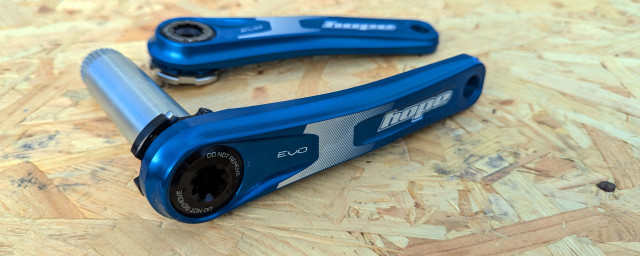On and off the record with Greg Minnaar
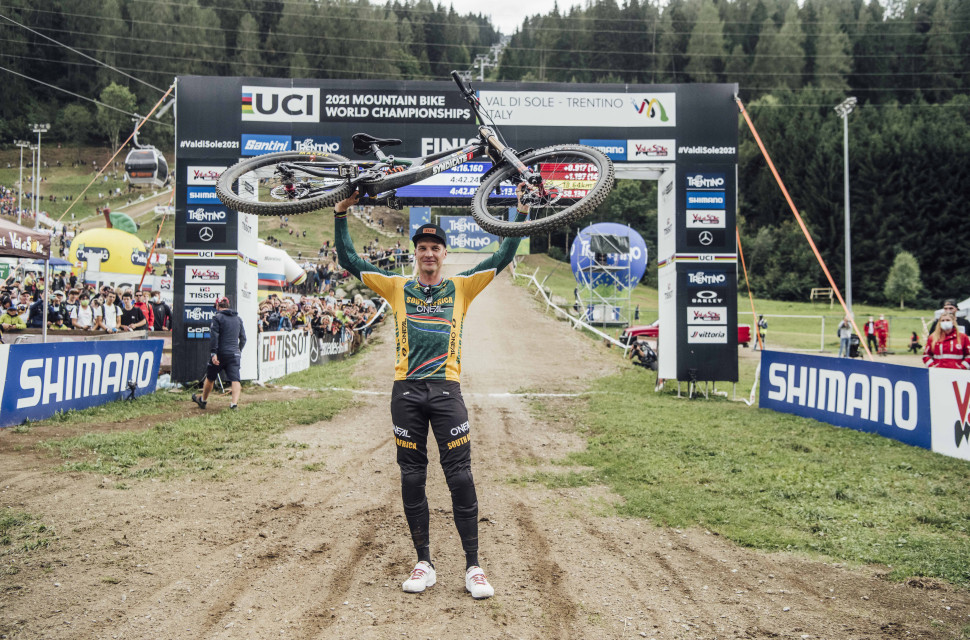
[Words by Steve Thomas]
For some 25 years, South African downhill racing pioneer Greg Minnaar has been at the top of the game and, at the tender age of 42, it has been written in dust that he is closing the book on his racing career. With four World Championship titles, three overall World Cup titles, a ruck of other medals and 23 World Cup round wins, Greg is often considered the GOAT of downhill racing.
- The Greg Minnaar phenomenon
- Greg Minnaar signs with Norco Factory Racing
- Mountain bike icons - the Greg Minnaar story
Despite battling out with riders half his age, Greg is still making a fine fist of the result board – so we cut through the tape and asked the man himself what the story is from here on in.
ORCC: It's hard to imagine the World Cup without you, is it really the end of the ride, or will you still do other races or enduro?
Greg Minnaar: It’s definitely my last season of World Cup racing. I’ll still do some other events, stuff that I’ve wanted to do but haven’t been able to because of the schedule. I won’t be going into enduro but there might be some enduros I will do. I’ll do some select events, maybe some nationals, some continental champs, the US Open – there’s some great downhill racing now, it’s not just World Cups. But it’s not going to be an enduro season.
ORCC: Last year's World Champs in Fort Bill, before the outcome, had you reached any decisions on carrying on this year. Had you won would you have ended it there?
GM: Fort William was a tough World Championships in that I knew it was a track I could do well on, and I came in really prepared. I just didn’t have a team around me that was prepared – I got my bike literally 30 seconds before the start of the race. It started raining while we were at the top, and we didn’t even have a mudguard. We had nothing. And so everyone was running around trying to get everything, swapping mudguards, and I was just waiting at the start gate with no bike.
It's not really the way you want to start any World Championship. I would have loved to have finished then but you just can’t finish on a season like that with a lot of mechanical issues – it was just a terrible season.
ORCC: With the Syndicate situation at the end of last season and finding a new team – how hard was that on you. Was there a point where you considered whether to continue or now, and how did it morph into a more involved role?
GM: At the end of 2023 when everything got thrown at me, it was a bit stressful, I must be honest. But at the same time, it also gave me some relief and opened up a few things. It was a weird time and, at one point, you’re quite emotional at what’s been going on and what’s happened, and then you kind of realise there’s more to it. And sometimes it’s better to be at a place where you’re celebrated, and not tolerated.
ORCC: How would you describe your role with the Norco team this year. What has it been like, what has it taught you?
GM: This year has been a hell of a learning curve. My role in the team comprises several things but the easiest way is to say it is 'director'. I was involved with setting up the team, hiring the staff, planning our movements forward – how we support riders from the technical side and trackside.
It's been really interesting, and I’ve enjoyed it. It’s made flipping the page into this next chapter easier because I’m loving what I’m doing; I’m writing rider contracts, and planning things until the end of 2025. It’s been super cool and interesting. I’m lucky to be in the position I am.
ORCC: You had some good results this year. Was there anything in there that would have led you to carry on when you can clearly still do it?
GM: Yeah, I’d love to carry on and I love racing, and I’m also still going to be involved in racing. This year I had some good results, for sure, and I think that if I had a little bit more time on the bike coming into the season that we’d have been a little bit more on top of things. But it’s been fun, and I’ve had a great team around me, and I dunno, I think it’s good time for me (to stop).
ORCC: The Andorra World Championships. How did that feel for you, were the emotions higher than normal, and what went through your mind after crossing the line, and also being asked to present the medals?
GM: In Andorra, there was a lot of stress, and I put a lot of pressure on myself. I knew that I could be quick on the track. Unfortunately, I had a massive crash in my last training run. I got really lucky; there was a big square rock and I managed to just go over the back of it and got a bit banged up, but nothing major.
I had to get into that final, and so when I got through the section where I crashed before I thought “Well – I need to catch up on time.” I possibly misjudged that, as I was actually on pace, but I was a bit hesitant (before that). So, as I opened it up into this lefthand turn, the front tyre kind of folded and spat me out funny. I lost a lot of speed and carried it into the road gap, and so it wasn’t the run I wanted. I felt I could have done better; I was three seconds off and 23rd, lucky 23, but not the result I wanted. But I was on the pace, and all-in-all, I wasn’t that disappointed with the run. The times were just incredibly close.
The highlight, for sure, was awarding Loris (Vergier) with his medal. David Lappartient, president of the UCI, asked if I could do that, and it was an honour – not only to be up there with the medalists but also to award Loris, he’s a good friend of mine.
ORCC: Will you be returning to South Africa now?
GM: It continues like it is. I live in Andorra now, and I’ve still got a house in South Africa, and a bike shop, so I still pop in every now and then, and I’ll continue to do. I love South Africa and being there but, unfortunately, my work is mostly in Europe.
We’ve got businesses in most of those things but the shop in Pietermaritzburg, I have a passion for it, it’s what got me into bicycles, and I think it’s important that we keep supporting local racing and the bike industry there. It’s really important to us and Craig and his team do an incredible job with the shop, and I’m thankful for that.
ORCC: The Norco and team situation, what will be your involvement there, and with cycling in general from here on?
GM: With Norco, I’ll continue to direct this team, a little bit more hands-on. I’ll still be at all of the World Cups, supporting the riders, and helping form a performance and technical side.
I’ll also continue to test and develop bikes with Norco. I have a big passion for developing and testing and have been really hands-on with that. This is something I’ve always loved, and I never really had the opportunity to just get in and help develop trail bikes, cross-country and all kinds of bikes, and after racing World Cups for over 20 years, you get a good feeling for what works and what doesn’t. I think it’s really important that gets shared through to consumers.
On the cycling side, we’ll still be involved with putting on local events in South Africa and helping the series there. From the UCI side, I’ve been on the Mountain Biking Commission since 2008, and I think I can still add value there – but we’ll see how that goes as my time is up at the end of the season.



